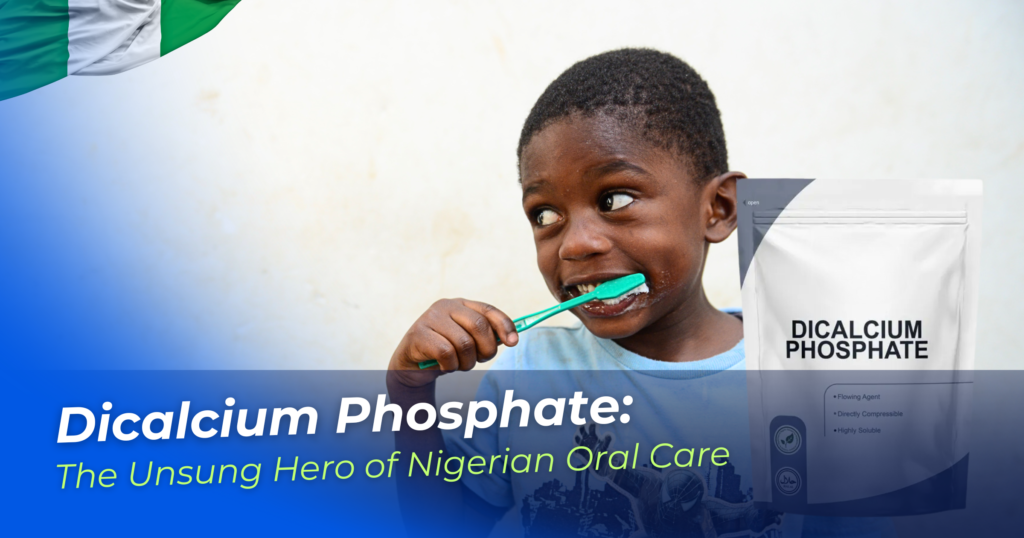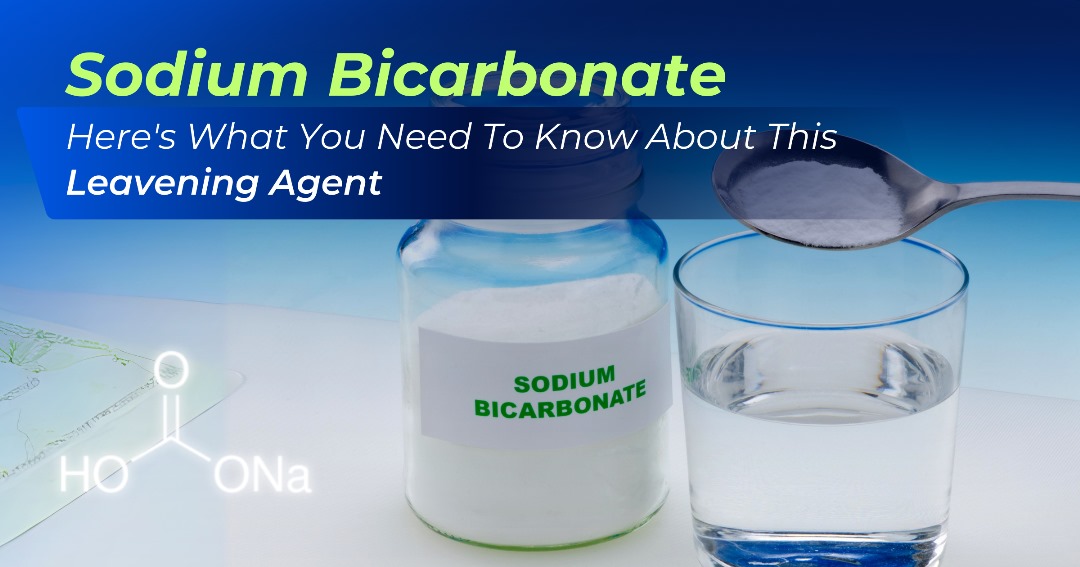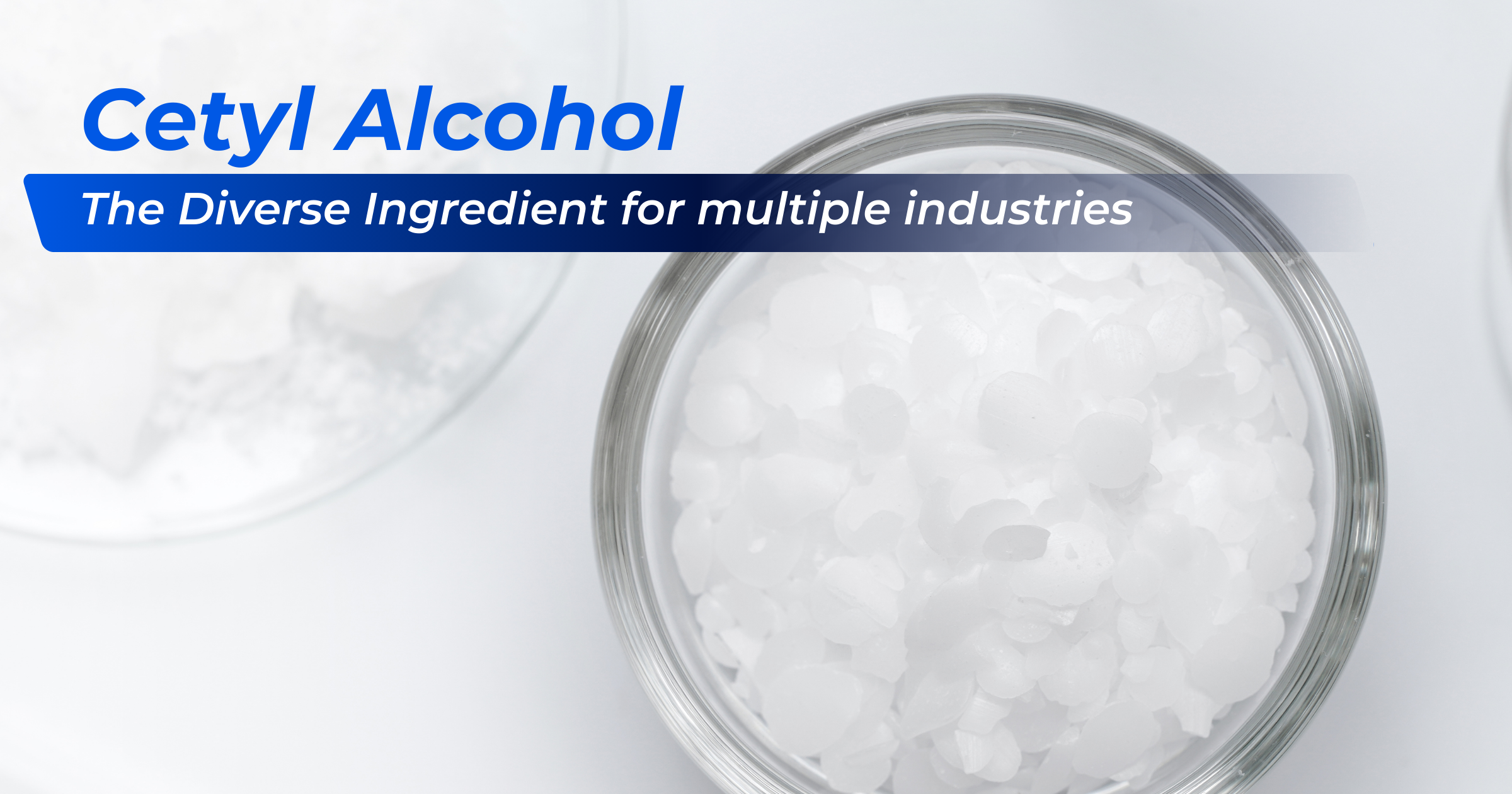
You brush your teeth daily, but have you ever thought about what’s in your toothpaste? Beyond the minty freshness and the promise of a dazzling smile lies an unsung ingredient—Dicalcium Phosphate. This compound is quietly revolutionizing oral care in Nigeria, and it’s high time we gave it the spotlight it deserves. This article is your ultimate guide to understanding Dicalcium Phosphate, its history, its role in Nigerian oral care, and why it’s the secret ingredient for a healthier, brighter smile.
When it comes to oral care, especially in a diverse and dynamic market like Nigeria, the ingredients that go into products are as crucial as the brand names themselves.
Dicalcium Phosphate is more than just a compound; it’s a cornerstone in the world of oral care. Used primarily as a polishing agent in toothpaste, it is vital in removing plaque and ensuring your teeth are squeaky clean.
But its benefits go beyond the surface; it’s also a calcium supplement, aiding in the remineralization of teeth.
In a country where oral health is a growing concern, understanding the role of Dicalcium Phosphate can be a game-changer for consumers and manufacturers alike.
Therefore, by understanding its role and benefits, consumers and manufacturers can make better choices, elevating the standard of oral care nationwide. In this article, we hope to enlighten and educate you with everything you need to know about this compound.
Without further ado, let’s dive in;
Elements of Dicalcium Phosphate that Make it Ideal for Oral Care
Di-calcium Phosphate boasts several key elements and properties that contribute to its excellence as an ingredient in oral care products:
Calcium and Phosphate
At its core, Dicalcium Phosphate is a rich source of both calcium and phosphate ions. These two elements are essential for remineralizing tooth enamel, helping to combat tooth decay and strengthen teeth. The calcium component strengthens the enamel, making it more acid-hesion-resistant.
Abrasive Nature
Dicalcium Phosphate also exhibits a mild abrasive quality, crucial for removing plaque and surface stains from teeth without being overly harsh. This gentle abrasiveness ensures thorough cleaning without causing enamel damage or tooth sensitivity.
pH Buffering
One of its lesser-known benefits is its ability to act as a pH buffer. Di-calcium Phosphate can help maintain a balanced pH level in the mouth, creating an environment where harmful bacteria struggle to thrive. This is particularly important for oral health, as an acidic environment can lead to tooth erosion and decay.
Versatility
Similarly, Dicalcium Phosphate’s dual role as a polishing and remineralizing agent makes it a versatile choice for toothpaste formulations. This versatility allows manufacturers to offer comprehensive oral care solutions to consumers.
Safety
Regulatory bodies generally recognise Dicalcium Phosphate as safe (GRAS), making it a trusted ingredient for oral care products.
These elements and properties collectively make Di-calcium Phosphate an ideal choice for promoting oral health and hygiene.
Role of Dicalcium Phosphate in Nigerian Toothpaste Brands
In Nigeria, oral care is a growing focus for consumers and healthcare professionals. As awareness about the importance of oral hygiene spreads, the demand for effective and affordable oral care products is on the rise. This is where Dicalcium Phosphate shines.
Basically, Nigerian toothpaste brands have successfully incorporated Dicalcium Phosphate into their formulations to address the specific oral care needs of the local population. Here are some critical aspects of Dicalcium Phosphate’s role in Nigerian toothpaste brands:
1. Customized Formulations
Nigerian toothpaste brands recognize the population’s diverse dietary habits and oral health challenges. As a result, they often customize their toothpaste formulations to cater to these unique needs. Dicalcium Phosphate, with its versatility, allows for tailored formulations.
2. Remineralization Focus
Following the prevalence of enamel demineralization caused by diet and lifestyle factors, many Nigerian toothpaste brands emphasize the remineralization aspect of Di-calcium Phosphate. Therefore, these formulations aim to restore lost minerals to tooth enamel, making it more resilient.
3. Plaque Control
Plaque buildup is a common concern in oral care. Nigerian toothpaste brands leverage Dicalcium Phosphate’s mild abrasive nature to include effective plaque control in their formulations. Also, this addresses the need for thorough cleaning and a reduction in plaque-related issues.
4. Fresh Breath Assurance
Chiefly, fresh breath is a cultural and social consideration in Nigeria. Toothpaste formulations containing Dicalcium Phosphate often include flavour enhancements to ensure a clean and fresh feeling after brushing, aligning with local preferences.
5. Accessibility
Nigerian toothpaste brands understand the importance of accessibility and affordability. Dicalcium Phosphate allows for the creation of effective toothpaste products accessible to a wide range of consumers, regardless of their economic background.
6. Local Manufacturing
The growth of local toothpaste manufacturing in Nigeria has led to the incorporating of Dicalcium Phosphate into locally produced brands. This not only supports the domestic industry but also ensures that oral care products are tailored to the needs of Nigerians.
7. Consumer Education
Nigerian toothpaste brands actively engage in consumer education efforts. They highlight the role of Di-calcium Phosphate in oral health through marketing campaigns and educational materials, emphasizing the importance of regular and effective oral care.
Benefits of Dicalcium Phosphate for Dental Health
Firstly, Dicalcium Phosphate plays a vital role in oral care, strengthening enamel by providing calcium and phosphate ions for remineralization. It restores enamel integrity, making teeth more resilient.
Additionally, it helps control tartar by breaking down deposits and preventing new buildup. While not a bleaching agent, its abrasive nature removes surface stains, promoting a brighter smile.
Furthermore, for gum health, it maintains balanced oral pH, limiting harmful bacteria. In sensitive teeth, it seals exposed tubules, offering relief. By buffering acids produced by bacteria, it prevents tooth decay and protects enamel, making Dicalcium Phosphate an essential ingredient in oral hygiene.
Production Process of Dicalcium Phosphate
- Step 1: Phosphate Rock Preparation
Firstly, the production journey of Dicalcium Phosphate starts with the preparation of phosphate rock. This raw material is typically sourced from phosphate deposits. The phosphate rock is mined, cleaned, and crushed into smaller particles to facilitate further processing.
- Step 2: Acidulation
Thereafter, the prepared phosphate rock is introduced into a reactor vessel, where it undergoes acidulation. In this step, concentrated sulfuric acid is added to the phosphate rock—this chemical reaction results in the formation of phosphoric acid.
- Step 3: Neutralization and Precipitation
Thirdly, acidulation, the phosphoric acid solution contains impurities that must be removed. To achieve this, a calcium source is introduced. Calcium sources like limestone or calcium carbonate are commonly used. In addition, this leads to the precipitation of Di-calcium Phosphate.
The impurities settle out, leaving behind the desired product. The Dicalcium Phosphate precipitate can then be separated, dried, and processed into the desired form, whether it’s a fine powder or granules.
- Step 4: Quality Control
Obviously, quality control measures are crucial throughout production to ensure the final product meets the required standards. Therefore, various tests and checks are conducted to verify the purity and quality of Dicalcium Phosphate.
- Step 5: Packaging and Distribution
Once the production process is complete, the Di-calcium Phosphate is typically packaged in suitable containers for distribution to manufacturers of oral care products and other industries where it is utilised.
Close Alternatives to Dicalcium Phosphate
While Dicalcium Phosphate is a highly effective and popular choice, other options are available. Here are some close alternatives:
Tricalcium Phosphate
Similar to Dicalcium Phosphate, Tricalcium Phosphate is another calcium phosphate compound. It’s often used in oral care products but is less soluble, making it less effective for remineralization.
Calcium Carbonate
This is another common abrasive agent used in toothpaste. While it’s effective for cleaning, it doesn’t offer the same remineralizing benefits as Dicalcium Phosphate.
Hydrated Silica
This compound is also used as a polishing agent in toothpaste. However, it lacks the calcium and phosphate ions that strengthen enamel.
Sodium Bicarbonate (Baking Soda)
Known for its cleaning and whitening properties, baking soda is a common alternative. However, it doesn’t contribute to enamel remineralization.
Each of these alternatives has its own set of advantages and disadvantages. Still, none offer the comprehensive benefits of Di-calcium Phosphate, making it a standout choice in the oral care industry.
Wrapping up
Indeed, as we conclude our journey through Dicalcium Phosphate’s role in Nigerian oral care, it’s evident this unsung hero plays a vital part in protecting our smiles. From remineralizing enamel to preventing tooth decay, controlling plaque, and ensuring fresh breath, it supports lasting oral health for all.
Furthermore, by blending ancestral wisdom with modern innovations, Dicalcium Phosphate continues to safeguard every smile, bite, and conversation. As we move forward, let’s appreciate this silent guardian working behind the scenes, ensuring our smiles remain bright and our oral health strong.
Thank you for joining us on this journey of discovery. Also, here’s to healthier, happier smiles and the unsung hero of Nigerian oral care.
Keep smiling, Nigeria!
FAQs
1. How Does Dicalcium Phosphate Interact with Anti-Inflammatory Agents in Oral Care Products?
It can act as a carrier for anti-inflammatory agents, enhancing their bioavailability and effectiveness.
2. What Are the Limitations of Dicalcium Phosphate in High-Humidity Environments?
It can absorb moisture, affecting the stability and shelf-life of oral care products.
3. How Does Dicalcium Phosphate Affect the Release Kinetics of Active Ingredients in Oral Care Formulations?
It modulates the release rate, ensuring a sustained delivery of active ingredients over time.
4. Is Dicalcium Phosphate Effective in Reducing Oral Malodor?
Indirectly, yes. By aiding in plaque removal, it contributes to better oral hygiene and reduced malodor.
5. How Does Dicalcium Phosphate React with Chelating Agents Commonly Used in Oral Care?
It can form complexes with chelating agents, affecting the product’s overall efficacy.
6. How Does Dicalcium Phosphate Contribute to the Formulation of Sensitive Teeth Toothpaste?
It aids in occluding dentinal tubules, providing relief from tooth sensitivity.
7. How Does Dicalcium Phosphate Interact with Fluoride Ions in Toothpaste Formulations?
Dicalcium phosphate enhances fluoride ion availability, optimizing anti-cavity effects.
What Are the Implications of Dicalcium Phosphate’s Solubility Constants in Saliva’s pH Range?
Its moderate solubility aids in enamel remineralization without risking dental fluorosis.
What Are the Regulatory Hurdles for Dicalcium Phosphate in the Nigerian Oral Care Market?
Regulatory focus is often on trace contaminants like lead, requiring rigorous quality control.
What’s the Role of Dicalcium Phosphate in Multi-Functional Oral Care Products (e.g., toothpaste with probiotics)?
It serves as a stabilizing agent, ensuring the viability of added functional ingredients like probiotics.
How Is Dicalcium Phosphate Positioned in the Circular Economy Model of the Nigerian Chemical Industry?
It’s increasingly sourced from recycled materials, aligning with circular economy principles.




